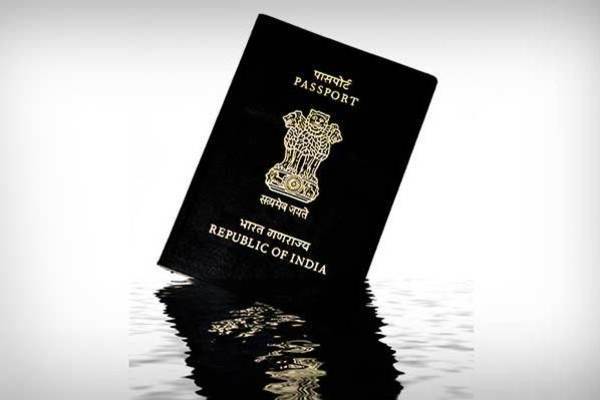Looks like Tibetans still finding it difficult to get Indian citizenship. Despite an order from the High Court last year that allows Tibetans born in India between 1950 and 1987 (and their children) the right to become Indian citizens. WHY?
These are just some possible reasons...
1. CTA is paying the Indian Gov. NOT to grant citizenships (passport) to control the Tibetans? Like the Shugden practitioners who needs to declare they are not Shugden practitioners to get a passport?
2. The Indian Gov. are not granting exile Tibetans citizenship/passports because maybe they don’t think that they have the right to be an “Indian” citizen? Maybe because there is a lack of integration with the Indian? Just a guess. But this certainly does not look good for the poorer, lower income Tibetans who struggles on a day to day basis, they cannot easily migrate to a foreign land like some of those in the CTA. So what will happened to them when HH.Dalai Lama passes? What will their future hold for them?
Tibetans living in India who have long been hoping to obtain Indian passport should expect to gain more clarity on the controversial issue.

Lawyers representing Lobsang Wangyal, a Tibetan resident of McLeod Ganj, have filed a contempt petition against the Ministry of External Affairs (MEA) for not following up on the Delhi High Court order of 22 September 2016.
That order asked the MEA to set a new rule so that passports can be issued to Tibetans born in India between 1950 and 1987 and their children.
The old rule practically bars the Tibetans from getting a passport as it requires them to furnish a “Citizenship Certificate” despite the fact that they were born in India.
Based on the new ruling by the Delhi High Court, Wangyal applied for a passport at Regional Passport Office (RPO) in Shimla on 20 October 2016.
The RPO approved issuing him a passport, and the police verification process subsequently began, but despite repeated explanations and proofs by Wangyal, a well-known photojournalist, that he had been residing in McLeod Ganj for nearly two decades, the police issued an adverse verification report to the RPO.
Amongst other things that led to such an assessment was the fact that Wangyal did not own any land or property in McLeod Ganj, and thus was said to be not entitled to permanent residency status.
The petition requests the High Court to initiate contempt proceedings against the authorities and punish them for their wilful disobedience of the court’s judgements, and direct the authorities to issue Wangyal a passport at the earliest.
The respondents to the petition are Pradeep Kumar Sinha, Cabinet Secretary; Dnyaneshwar Mulay, Secretary, Ministry of External Affairs; and Rajiv Mehrishi, Ministry of Home Affairs, Government of India.
The case will be heard on 21 February 2017. Wangyal is represented by Giriraj Subramaniam, of Giriraj Subramaniam Chambers, New Delhi.
Subramaniam unequivocally believes that denying passport to Tibetans is a violation of their basic human right. “Having been born in India, Tibetans in exile should be allowed to pursue their dreams in India like any other proud citizen of India,” he said.
In some cases, it has directly affected their ability to carry on with their duties, as in the case of a young Tibetan air hostess in Delhi who cannot fly overseas due to lack of a passport. In the case of Wangyal, a lack of passport has prevented him from travelling abroad and pursuing his career internationally.
The case of Indian citizenship for Tibetans is not new. Judgements by the Delhi High Court in December 2010 pertaining to Namgyal Dolkar, and by the Karnataka High Court in August 2013 pertaining to Ling Rinpoche, both recognised the right of the children of Tibetan refugees born between 26 January 1950 and 1 July 1987 to be treated as Indian citizens.
In addition, on 7 February 2014 the Election Commission of India issued directions via a letter to the chief electoral officers of all Indian states and union territories for registration of Tibetan refugees and their children in the electoral rolls as per the above judgement.
The petition also requests setting a clear way to surrender the Tibetan Registration Certificate (RC), as there is no clear rule on how to surrender an RC. As per the police rule, those Tibetans would have to surrender their RC to the place of issue, which would require them to travel far away from their current residence. It is recommended that they can be surrendered at the nearest SP Office once the holder gets their passport.
Source: https://www.tibetsun.com/news/2017/02/18/lawyers-file-contempt-petition-against-mea-regarding-tibetan-passport-issue